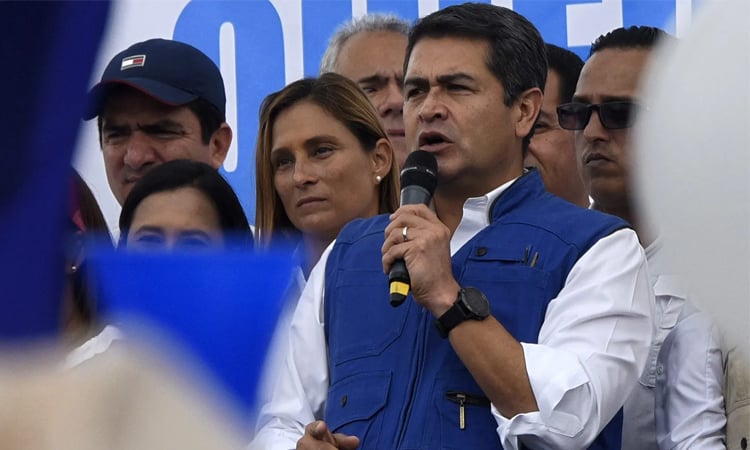News Flash
News Flash

TEGUCIGALPA, Nov 25, 2025 (BSS/AFP) - Hondurans go to the polls on Sunday in a closely fought presidential election rife with fraud accusations that have sparked fears of violence in a country where coups are an ever-present threat.
Lawmakers and mayors will also be elected in one of the world's leading coffee exporters, which is plagued by drug cartels and gang violence.
Polls show three candidates neck-and-neck in the race to succeed the country's first woman president, leftist Xiomara Castro.
One of the top candidates is from her party and the other two are from the right, which backed the 2009 military overthrow of Castro's husband, ex-president Manuel Zelaya.
Lawyer Rixi Moncada, 60, of Castro's Liberty and Refoundation Party (Libre) has portrayed the vote as a choice between a "coup-plotting oligarchy" and Libre's brand of "democratic socialism."
Her right-wing rivals, 67-year-old ex-mayor Nasry Asfura of the National Party, and 72-year-old TV host Salvador Nasralla, brand Moncada a "communist."
They argue that the Zelaya-Castro family, which is allied with Venezuela and Cuba, will be pulling the strings if she wins.
Castro is barred by the constitution from seeking a second consecutive term.
The mud-slinging between candidates has overshadowed the issues facing voters in a country where one in six live in poverty and corruption is rampant.
"I hope those who lose accept defeat and that things change, that there are jobs and less violence," Martha Ramos, a 50-year-old domestic worker living in a shantytown in the capital Tegucigalpa, told AFP.
- US warning -
A request by the military to verify the vote count has added to widespread fears of a post-election standoff.
Although rejected by the National Electoral Council, the request raised fears of army interference in favor of the ruling party.
The United States has amplified "grave concerns" among the local business community about the vote and warned that it will act "swiftly and decisively against anyone who undermines the integrity of the democratic process in Honduras."
The Organization of American States and the European Union have sent observers to the election and urged respect for the outcome.
"The country needs to get out of this impasse. But corruption and tensions among the party elites prevent them from seeing what Hondurans need," Manuel Orozco, an analyst at the Inter-American Dialogue think tank in Washington, told AFP.
- Billions in lost remittances -
Asfura was a building entrepreneur before becoming mayor of Tegucigalpa, which he endowed with multiple tunnels and bridges aimed at alleviating chronic gridlock.
He has tried to distance himself from former president Juan Orlando Hernandez, also of the National Party, who is serving a 45-year prison term in the United States for helping to traffic around 400 tons of cocaine.
Liberal Party candidate Nasralla made his name as a TV host of beauty pageants and a commentator of sports events.
He has vowed to copy El Salvador's iron-fisted, gang-busting President Nayib Bukele "to end extortion in Honduras and so that people feel safe."
Moncada, who served as labor, finance and defense minister in the Zelaya and Castro administrations, wants to hike taxes on economic "elites."
Johana Rodriguez, a 47-year-old beauty stylist in Tegucigalpa, said that fixing the economy and security were key "so that people don't have to emigrate."
Migration to the United States is, however, no longer a viable option under President Donald Trump.
His administration deported around 27,000 Honduran migrants this year and revoked the Temporary Protected Status of a further 51,000, making them vulnerable to being expelled.
The crackdown has dealt a severe blow to the economy of a country that received $10 billion in remittances from overseas citizens in 2024, representing 27 percent of GDP.
Gang violence and graft continue to blight the lives of those left behind.
A state of emergency, in effect since December 2022, has significantly reduced the murder rate.
But with 26.8 homicides per 100,000 inhabitants in 2024, Honduras remains one of the most dangerous countries in Latin America.